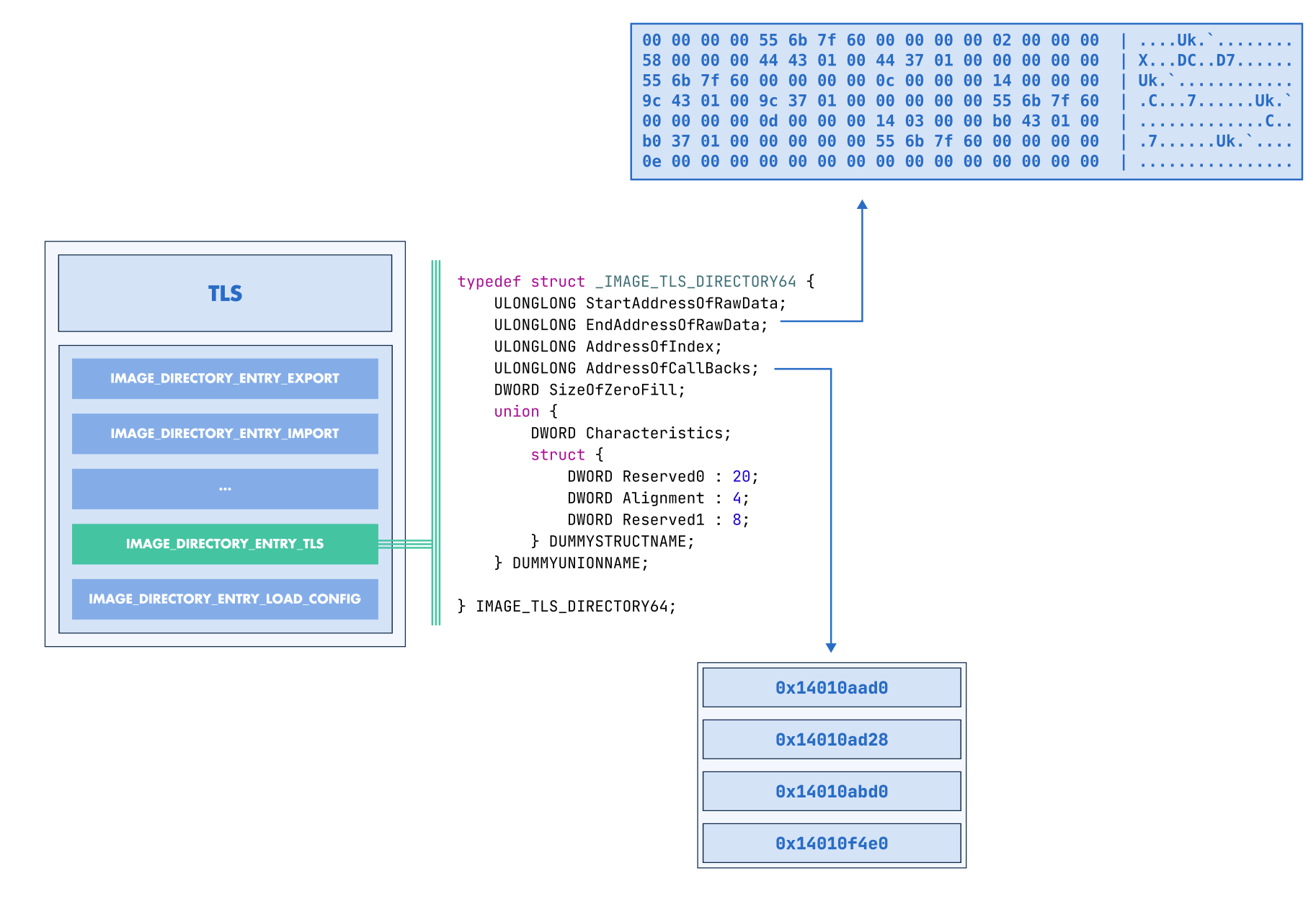TLS Modification¶

LIEF can be used to modify, create, or remove Thread Local Storage (TLS) information. Relocations Note that LIEF automatically manages the relocations that must be created or removed when modifying the TLS callbacks. If a PE binary does not contain TLS metadata, LIEF can be used to create this structure. First, we can create and initiate a TLS instance: Relocations Similary to the TLS callbacks modifications, LIEF automatically manages the relocations. In addition, it automatically initialize (if not set by the user) TLS Modifications¶
import lief
pe: lief.PE.Binary = ...
callbacks: list[int] = pe.tls.callbacks
# Remove the last entry
callbacks.pop()
# Add an address
callbacks.append(0x140001010)
tls.callbacks = callbacks
pe.write("tls_modified.exe")
#include <LIEF/PE.hpp>
std::unique_ptr<LIEF::PE::Binary> pe;
std::vector<uint64_t> callbacks = pe->callbacks();
# Remove the last entry
callbacks.pop_back();
# Add an address
callbacks.push_back(0x140001010);
tls->callbacks(std::move(callbacks));
pe->write("tls_modified.exe");
let mut pe: lief::pe::Binary;
let mut tls = pe.tls().unwrap();
let mut callbacks: Vec<u64> = tls.callbacks();
# Remove the last entry
callbacks.pop();
# Add an address
callbacks.push(0x140001010);
tls.set_callbacks(callbacks);
pe.write("tls_modified.exe");
TLS Creation¶
import lief
tls = lief.PE.TLS()
tls.callbacks = [
0x140001000,
0x140001010,
]
#include <LIEF/PE.hpp>
LIEF::PE::TLS tls;
tls.callbacks(std::vector<uint64_t> {
0x140001000,
0x140001010,
});
use lief;
let mut tls = lief::pe::TLS::new();
tls.set_callbacks(vec![
0x140001000,
0x140001010,
]);
pe: lief.PE.Binary = ...
pe.tls = tls # `tls` defined previously
pe.write("tls_demo.exe")
std::unique_ptr<LIEF::PE::Binary> pe;
pe->tls(tls); // `tls` defined previously
pe->write("tls_demo.exe");
let mut pe: lief::pe::Binary;
pe.set_tls(&tls); // `tls` defined previously
pe.write("tls_demo.exe");
AddressOfIndex which is mandatory when defining up TLS metadata.